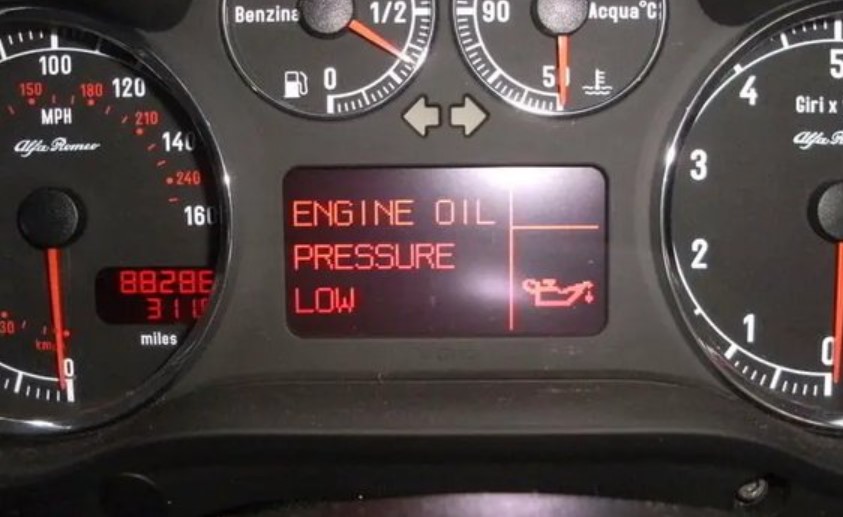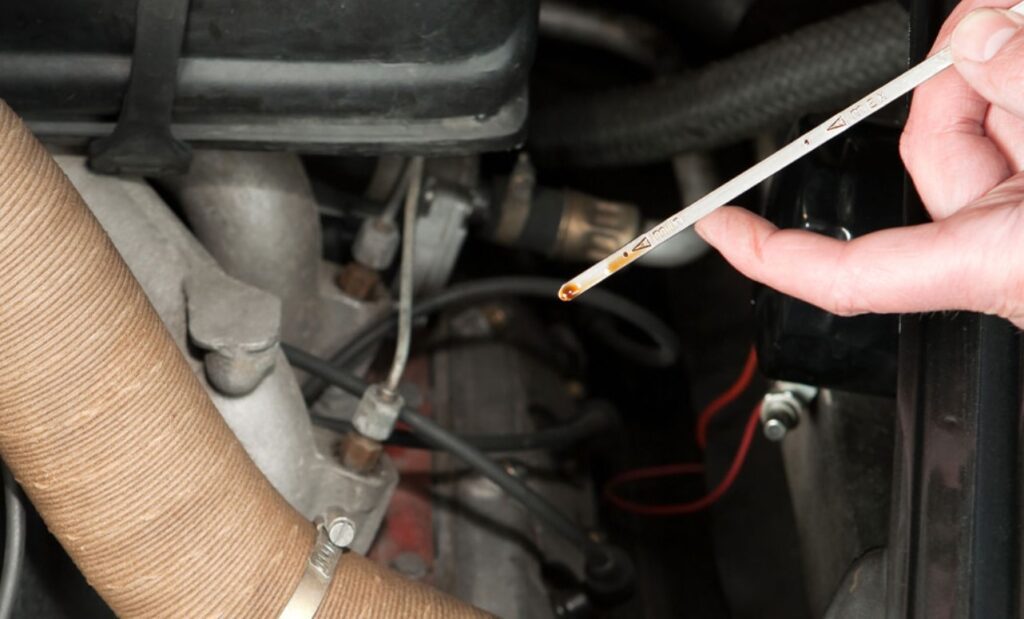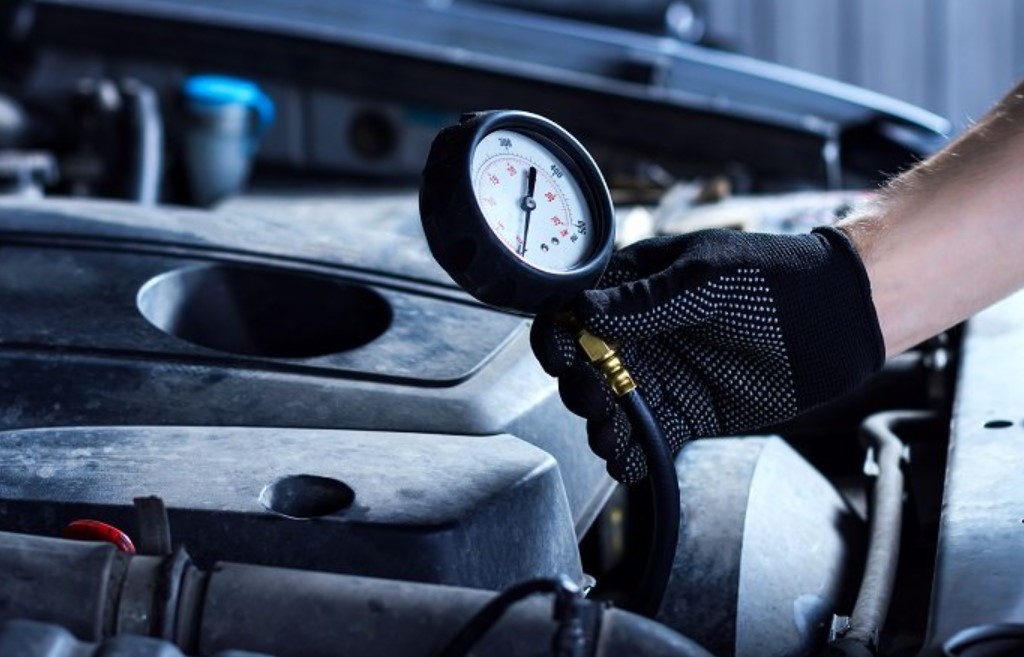What Causes Low Oil Pressure On Diesel Engine? Explained
Experiencing low oil pressure in a diesel engine can be a cause for concern for any vehicle owner. So, the question arises What Causes Low Oil Pressure On Diesel Engine? This is a critical question that needs addressing to maintain engine health and performance. The reasons behind this issue can range from simple fixes to more complex mechanical problems. Understanding these causes is crucial for timely interventions and ensuring the longevity of your diesel engine.
Key Takeaways
- Low Oil Level: Insufficient oil in the engine can lead to low oil pressure.
- Worn Out Components: Over time, engine components can wear out, affecting oil pressure.
- Oil Viscosity Issues: Incorrect or degraded oil can cause pressure problems.
- Blocked Oil Filters: Clogged filters restrict oil flow, leading to low pressure.
- Oil Pump Failure: A malfunctioning oil pump can significantly reduce oil pressure.
What Causes Low Oil Pressure On Diesel Engine?
The primary cause of low oil pressure in a diesel engine is often due to insufficient oil in the system. This can be a result of leaks, prolonged use, or inadequate maintenance.
Another critical factor is the wear and tear of engine components, which can affect the oil pressure over time.

Additionally, the use of oil with incorrect viscosity or oil that has degraded can lead to inadequate lubrication and, subsequently, low oil pressure. Blocked oil filters and a failing oil pump are also common culprits behind this problem.
Insufficient Oil in the System
A significant drop in oil level is a primary cause of low oil pressure. Leaks in the engine or not following the proper oil change schedule can lead to a decrease in oil quantity, thereby affecting the pressure. Regular checks and timely oil changes are essential in preventing this issue.
Wear and Tear of Engine Components
Over time, engine components such as bearings and journals can wear out, leading to a decrease in oil pressure. This wear and tear can cause the oil to leak internally, reducing the overall pressure within the engine.
Oil Viscosity and Quality
Using oil with the incorrect viscosity can significantly impact the oil pressure. Thicker oils might not flow as easily, especially in colder temperatures, leading to low pressure.
Similarly, using degraded or contaminated oil can also cause pressure problems, underscoring the importance of using high-quality oil and changing it as per the manufacturer’s recommendations.
Blocked Oil Filters
Oil filters play a crucial role in maintaining oil cleanliness. Over time, these filters can get clogged, restricting the flow of oil and leading to decreased pressure. Regularly changing the oil filter is a simple yet effective way to maintain optimal oil pressure.
Oil Pump Failure
The oil pump is responsible for circulating oil throughout the engine. A malfunctioning oil pump can lead to inadequate oil flow, directly impacting the oil pressure. This issue requires immediate attention, as it can lead to severe engine damage if left unaddressed.
Engine Oil Leaks
Engine oil leaks are a common issue that can lead to low oil pressure in diesel engines. These leaks can occur due to various reasons, such as worn-out seals, gaskets, or even cracks in the engine. Identifying and fixing these leaks promptly is essential to maintain the correct oil pressure and prevent further engine damage.

Common Causes of Oil Leaks
Seals and gaskets are prone to wear and tear, and over time they can start to leak oil. Regular inspections can help identify these leaks early on. Cracks in the engine, though less common, can also lead to significant oil leaks and should be addressed immediately to avoid major repairs.
Impact of Oil Leaks on Engine Performance
Oil leaks not only lead to low oil pressure but can also affect the overall performance of the engine. Reduced lubrication can cause increased friction and heat, potentially leading to engine overheating and accelerated wear of engine parts.
Incorrect Oil Viscosity
Using oil with the wrong viscosity can significantly impact the performance of a diesel engine. The viscosity of the oil determines its flow rate and lubricating properties, which are crucial for maintaining optimal engine performance.
Importance of Choosing the Right Oil Viscosity
Choosing the correct oil viscosity is vital for ensuring adequate lubrication and pressure in the engine. Using oil that is too thick or too thin can lead to various engine issues, including low oil pressure.
How Oil Viscosity Affects Engine Health?
Oil that is too thick may not flow smoothly, especially in colder temperatures, leading to inadequate lubrication and increased wear. Conversely, oil that is too thin might not provide sufficient lubrication, especially under high load or high-temperature conditions, leading to increased friction and potential engine damage.
Clogged Oil Filters
Clogged oil filters are a common cause of low oil pressure in diesel engines. These filters are designed to remove contaminants from the engine oil, but over time, they can become clogged with debris, affecting their performance.

The Role of Oil Filters in Engine Health
Oil filters play a crucial role in maintaining the cleanliness of the engine oil. They help remove contaminants that can cause wear and tear on engine components.
Consequences of Neglecting Oil Filter Changes
Neglecting to change the oil filter can lead to a buildup of contaminants, which can clog the filter and restrict oil flow. This restriction can result in low oil pressure, potentially causing engine damage due to inadequate lubrication.
What Is Most Likely To Cause Low Oil Pressure?
The most likely causes of low oil pressure in a diesel engine include insufficient oil level, the use of incorrect oil viscosity, worn engine components, clogged oil filters, and a failing oil pump.
- Insufficient Oil Level: This is a common and easily rectifiable cause. If the oil level is too low, the engine can’t maintain adequate pressure. Regular checking and topping off of oil can prevent this issue.
- Incorrect Oil Viscosity: Using oil with a viscosity not recommended for your engine can lead to pressure problems. Thicker oil might not circulate well, especially in colder temperatures, while thinner oil might not provide sufficient lubrication.
- Worn Engine Components: Over time, components like bearings and seals can wear out, affecting the engine’s ability to maintain proper oil pressure.
- Clogged Oil Filters: A dirty or clogged oil filter restricts oil flow, leading to lowered pressure. Regular filter changes are crucial.
- Failing Oil Pump: The oil pump circulates oil throughout the engine. If it’s malfunctioning, it can’t maintain the necessary pressure, leading to potential engine damage.
How Can You Tell If Your Engine Has Low Oil Pressure, And What Should You Do?
You can tell if your engine has low oil pressure through several indicators:
- Warning Light or Gauge: Most vehicles have an oil pressure warning light or gauge on the dashboard. If the light comes on or the gauge reads low, it’s an immediate indication.
- Engine Noise: Unusual noises, like knocking or ticking from the engine, can indicate low oil pressure due to inadequate lubrication.
- Engine Overheating: Low oil pressure can lead to increased friction and heat, causing the engine to overheat.

If you suspect low oil pressure, you should:
- Stop the Engine: Continuing to drive can cause severe engine damage.
- Check the Oil Level: Add oil if it’s low and see if the pressure returns to normal.
- Check for Leaks: Look for any signs of oil leaks under the vehicle.
- Consult a Professional: If oil levels are fine and the problem persists, have your vehicle checked by a qualified mechanic.
What Are The Consequences Of Running An Engine With Low Oil Pressure?
Running an engine with low oil pressure can lead to several serious consequences:
- Increased Engine Wear: Without proper lubrication, engine components wear out faster.
- Heat Damage: Low oil pressure means less cooling and increased heat, which can cause components to warp or fail.
- Seized Engine: In severe cases, the engine can seize, requiring expensive repairs or even a complete replacement.
- Reduced Efficiency: Low oil pressure can lead to poor engine performance and reduced fuel efficiency.
- Catastrophic Engine Failure: Ultimately, consistently running with low oil pressure can lead to complete engine failure, a costly and potentially dangerous outcome.
Conclusion
Understanding what causes low oil pressure in a diesel engine is essential for maintaining engine health and performance. Key factors include maintaining proper oil levels, using the correct oil viscosity, regularly changing oil filters, and addressing any leaks or worn-out components.
By paying attention to these aspects, you can ensure that your diesel engine operates efficiently and avoids potential damage due to low oil pressure. Remember, regular maintenance is the key to preventing and addressing low oil pressure issues in diesel engines.
Frequently Asked Questions
Are there any additives that can help maintain oil pressure?
While there are additives that claim to improve oil performance, it’s essential to consult your vehicle’s manual or a professional before using them. Some additives can do more harm than good, especially if they’re not compatible with your engine type.
Can external temperatures affect oil pressure in diesel engines?
Yes, extreme temperatures can affect oil viscosity and flow, impacting the oil pressure. In cold climates, thicker oil can have trouble flowing, while in hot climates, oil can become too thin, leading to pressure drops.
How often should I check my diesel engine’s oil level?
It’s recommended to check the oil level at least once a month and before any long trip. Keeping the oil at the proper level is crucial for maintaining pressure and engine health.
Is it safe to drive with low oil pressure?
Driving with low oil pressure is risky and can lead to severe engine damage. If you notice low oil pressure, it’s advised to stop the vehicle and address the issue immediately.

Welcome to the exhilarating world of Matt Rex, a professional car racer turned renowned vehicle enthusiast. Immerse yourself in his captivating blog as he shares heart-pounding adventures, expert reviews, and valuable insights on cars, trucks, jets, and more. Fuel your passion for speed and discover the beauty of vehicles through Matt’s engaging stories and meticulous expertise. Join the ever-growing community of enthusiasts who find inspiration and expert advice in Matt Rex’s blog—a digital hub where the thrill of speed meets the pursuit of knowledge.







